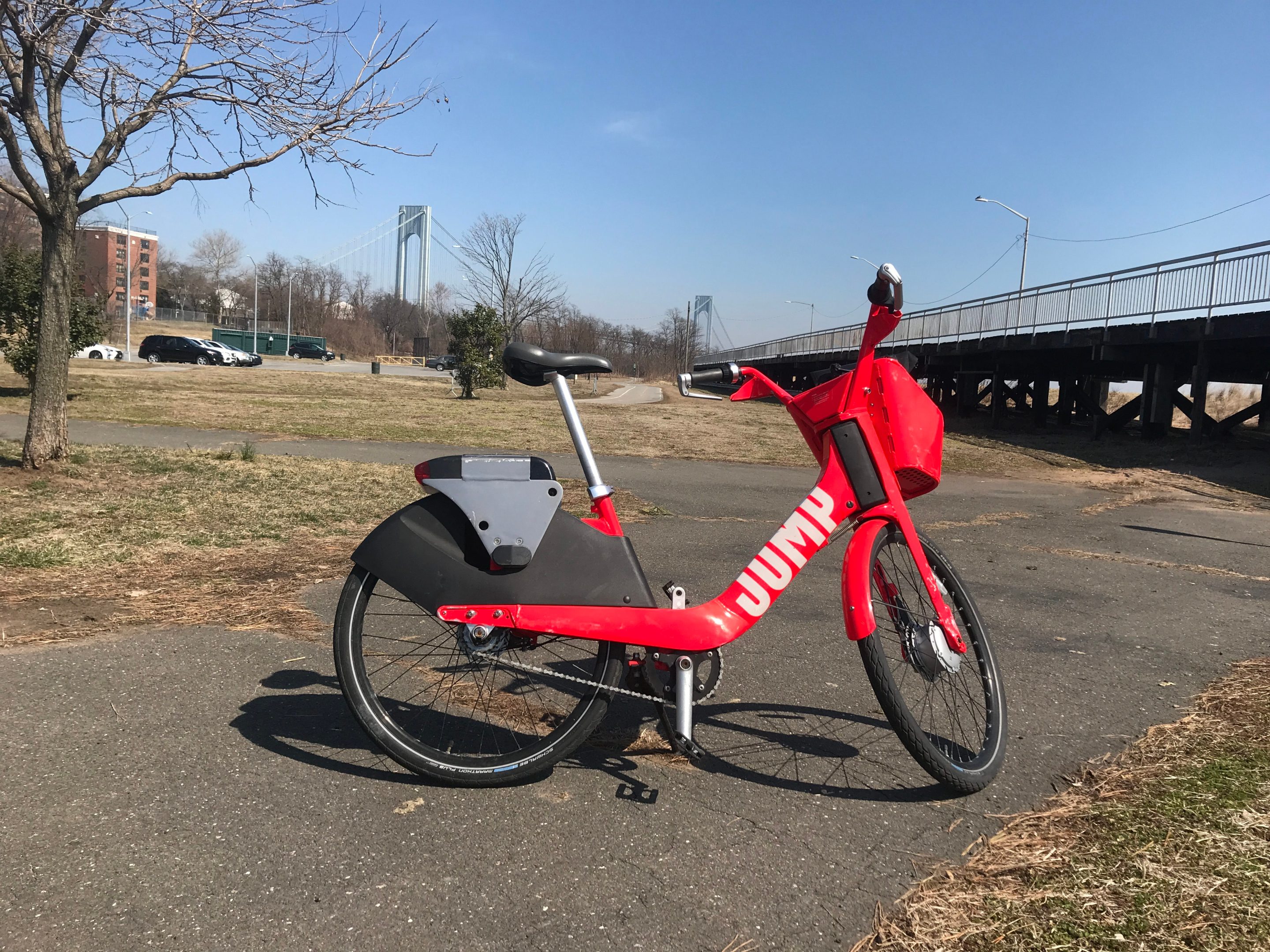Rock, but don't roll.
The city has stalled on finding a bike share operator for Staten Island despite the passage of more than five months since the Department of Transportation's hand-picked company, Beryl, bailed out, citing the pandemic.

And the delay will likely continue into next year; a DOT spokesman told Streetsblog that the agency has no active requests for proposals for a bike share system for Staten Island, a county of 475,000 people.
The agency declined to answer the specifics of why, but Staten Island Borough President Jimmy Oddo is frustrated.
"It's so disappointing that no one at DOT has been able to get it done," he told Streetsblog this week. "There is a passionate pro-bike universe out here that wants bike share."
Oddo's Deputy Chief of Staff Jennifer Sammartino said the island's experience with Jump and Lime in 2018-9 showed "that bike share is something we really need on Staten Island," but added that since the Beryl pullout, "it has never been made clear why there is not another company that could handle it."
Or, as Oddo summarized, "It's been a crappy series of events."
That series includes the city's decision in 2019 to end its pilot program with the bike share companies Jump and Lime — and then, in late 2019, choose Beryl, an overseas company with no experience in these United States. Beryl did not establish its program as promised in April 2020, and then admitted in April, 2021 that it had, in fact, abandoned the attempt (a development that prompted Streetsblog to report, "Like they did in the late 18th century, the British have fled New York City in disgrace without accomplishing any of their stated goals").
At the time, DOT’s Staten Island Borough Commissioner Roseann Caruana used the following words in a tweet:
“We are deeply disappointed in this news, and would like to assure Staten Islanders that we are actively studying micromobility options for the borough."
Interestingly, DOT spokesman Scott Gastel used the exact same language this week: "We continue to actively study micromobility options on Staten Island."
That active study most certainly includes talking to Citi Bike, which operates a fairly well-known bike-share system in Manhattan and parts of the Bronx, Brooklyn and Queens. The Staten Island market at once presents opportunities — as the island's newspaper, the Advance, readily shows, it's nice to operate in a geographic monopoly — but also pitfalls: Staten Island is hilly, which means any operator would have to commit a lot of e-bikes (something that Citi Bike admitted this week in a blog post is not that easy).
In addition, operating a bike-share system for a city with about the same number of people as Miami and spread out over a space as big as Oakland, would likely require any company to set up a separate back office for employees, repairs and rebalancing.
But all of that is achievable given the right financing. Incoming Mayor Eric Adams has already pledged that he would put public money into Citi Bike — something the de Blasio administration has refused repeatedly to do.
"Committing city funding,” Adams told Streetsblog, would allow Citi Bike to expand "well beyond more affluent communities."
That said, there's no guarantee that Staten Island is an area Adams had in mind; the borough's median annual income of $79,000 is only about $4,000 less than that of Manhattan.
Still, Staten Islanders yearn to get around with the wind in their hair (and not just on the ferry).
"Permanent bike share on Staten Island is desperately needed," the Harbor Ring Committee said in a statement. "If Covid has taught us anything, it’s that alternative modes of transportation are essential in both everyday life, and during a pandemic. Bike share has proven itself to be an integral part of New York City transportation. This is true especially on Staten Island where transit options are limited and there is an obvious lack of integration with the rest of the city.
"Far too often Staten Island is last, or entirely left out when it comes to transportation policy. Sadly bike share is another example of this," added the group, which is fighting for a bike lane on the Verrazzano Bridge.
Citi Bike and Lime, which now owns Jump, declined to comment.






